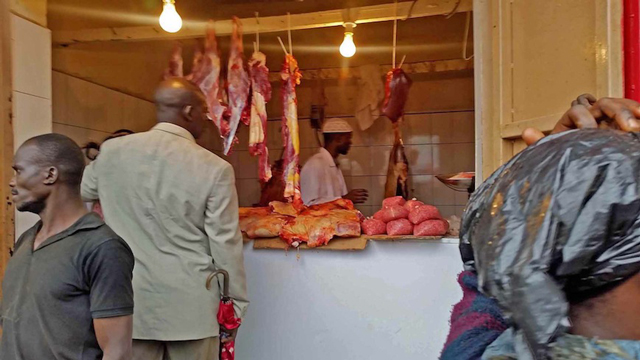
Kampala, Uganda | THE INDEPENDENT | The Uganda National Bureau of Standards (UNBS) has moved to enhance the quality of meat sold on the Ugandan market, setting various standard operating measures for butchers.
This after a tour of butchers shops in different places revealed the poor hygienic conditions of the meat sold around the country.
The issues were addressed in a hygiene standards sensitisation meeting with all butcher shop owners in Kampala, held at the UNBS head offices in Bweyogerere on Thursday.
UNBS says all butchers in Uganda should acquire and follow the existing Uganda Standard, “US 736: 2019 Hygienic Requirements for Butcheries”, and ensure that their premises meet the hygiene standards.
This was “in line with the UNBS mandate of promoting standards’ use in protection of public health and safety and the environment against dangerous and substandard products,” according to Rehema Meeme, a Standards Officer at UNBS.
The move targets ensuring quality and safety of meat and its products to safeguard the health and safety of Ugandan consumers.
She said the violations of standards included the location of butcher shops near shops. Lack of sanitary facilities among others
The longstanding claim by the public of using pesticide and other chemicals, as well as selling overstayed beef and beef not inspected also came out, according to her.
She says the training of butchers and others related to the industry will e conducted countrywide as part of the enforcement.
The standards are available on the UNBS website: https://webstore.unbs.go.ug.
Explaining the requirements set by the standards, Awath Aburu, a Standards Officer at UNBS urged the butchers and butcher’s shop owners to strictly follow the general standards requirements and guidelines that include possession of occupation permits for the premises.
Other requirements are a medical examination certificate, a valid trading license and a first aid kit. They are also expected to sell only hygienic meat and meat products, and use appropriate insect traps and/or screens.
The Standard also sets guidelines for the construction of butchers’ shops including use of smooth and easy-to-clean food grade surfaces of at least a metre high. The standard also emphasises separate areas for offals and the rest of the meat and use of shatterproof or hardened translucent plastic of a metre high.
The butchers’ shop owners should also use water proof and washable materials for walls and floor, while the premises should be well lit, ventilated, have Vermin and fly proof screens.
The standard further sets guidelines for the equipment to be used, which should be stainless steel, easy to clean and kept clean and in proper places.
In personal hygiene, the standard requires that personnel should be clean and bathe regularly before handling meat, wear complete and clean personnel protective gears, and also be medically fit to handle meat.
The standard also moves to protect the consumers from the effects of handling money when serving meat as notes carry many germs and viruses. They are required to deploy personnel specifically to handle cash, while the meat handlers should also wash their hands regularly, on top of keeping all jewellery and personal items in changing rooms.
The standard also sets guidelines for operations, including requiring that meat for sale be displayed on hooks inside the shops, while Meat from different animal species is displayed separately.
The standard bars non butcher staff, food, jewellery and personal items from the meat handling area, while the handling staff shall not wear body perfume.
For transportation, the standard requires that meat is moved in clean, fly-proof, cold and closed vessels, which must be easy to clean and with non-absorbent surfaces. The vehicles shall have been inspected and permitted by a competent authority to be used.
Other restrictions include having live animals in the butchery, using unapproved insecticides, operating where there is no drainage and soak pit and locating the butchery near a refuse dump, stable, poultry house and road.
To simplify the requirements, they have been translated into Luganda and Swahili.
One Saaka Abdul Hafithu, one of the butchers said he had picked out the fact that money handling can lead to spreading of disease, but also said customers sometimes make false claims on the weights used.
On his part, Matovu Hamza operating from Kireka Butcher, admitted that hygiene was lacking in their operations.
He also accused health inspectors of not giving the certificates, while the authorities levy taxes which are very high, according to him.
****
URN
 The Independent Uganda: You get the Truth we Pay the Price
The Independent Uganda: You get the Truth we Pay the Price





